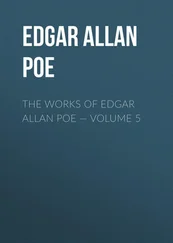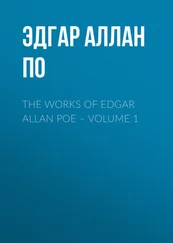Thomas Browne - The Works of Sir Thomas Browne, Volume 3
Здесь есть возможность читать онлайн «Thomas Browne - The Works of Sir Thomas Browne, Volume 3» — ознакомительный отрывок электронной книги совершенно бесплатно, а после прочтения отрывка купить полную версию. В некоторых случаях можно слушать аудио, скачать через торрент в формате fb2 и присутствует краткое содержание. ISBN: , Жанр: foreign_antique, foreign_prose, на английском языке. Описание произведения, (предисловие) а так же отзывы посетителей доступны на портале библиотеки ЛибКат.
- Название:The Works of Sir Thomas Browne, Volume 3
- Автор:
- Жанр:
- Год:неизвестен
- ISBN:http://www.gutenberg.org/ebooks/39962
- Рейтинг книги:4 / 5. Голосов: 1
-
Избранное:Добавить в избранное
- Отзывы:
-
Ваша оценка:
- 80
- 1
- 2
- 3
- 4
- 5
The Works of Sir Thomas Browne, Volume 3: краткое содержание, описание и аннотация
Предлагаем к чтению аннотацию, описание, краткое содержание или предисловие (зависит от того, что написал сам автор книги «The Works of Sir Thomas Browne, Volume 3»). Если вы не нашли необходимую информацию о книге — напишите в комментариях, мы постараемся отыскать её.
The Works of Sir Thomas Browne, Volume 3 — читать онлайн ознакомительный отрывок
Ниже представлен текст книги, разбитый по страницам. Система сохранения места последней прочитанной страницы, позволяет с удобством читать онлайн бесплатно книгу «The Works of Sir Thomas Browne, Volume 3», без необходимости каждый раз заново искать на чём Вы остановились. Поставьте закладку, и сможете в любой момент перейти на страницу, на которой закончили чтение.
Интервал:
Закладка:
All which were evident and convincing acknowledgements of that Power which shut his lips, and restrained that delusion which had reigned so many Centuries. But as his malice is vigilant, and the sins of men do still continue a toleration of his mischiefs, he resteth not, nor will he ever cease to circumvent the sons of the first deceived. The devils retreat when expelled the Oracles. And therefore expelled from Oracles and solemn Temples of delusion, he runs into corners, exercising minor trumperies, and acting his deceits in Witches, Magicians, Diviners, and such inferiour seducers. And yet (what is deplorable) while we apply our selves thereto, and affirming that God hath left to speak by his Prophets, expect in doubtfull matters a resolution from such spirits, while we say the devil is mute, yet confess that these can speak; while we deny the substance, yet practise the effect and in the denied solemnity maintain the equivalent efficacy; in vain we cry that Oracles are down; Apollos Altar still doth smoak; nor is the fire of Delphos out unto this day.
Impertinent it is unto our intention to speak in general of Oracles, and many have well performed it. The plainest of others was that of Apollo Delphicus recorded by Herodotus , and delivered unto Crœsus ; who as a trial of their omniscience sent unto distant Oracles; and so contrived with the Messengers, that though in several places, yet at the same time they should demand what Crœsus was then a doing. Among all others the Oracle of Delphos only hit it, returning answer, he was boyling a Lamb with a Tortoise, in a brazen vessel, with a cover of the same metal. The stile is haughty in Greek, though somewhat lower in Latine.
Æquoris est spatium et numerus mihi notus arenæ
Mutum percipio, fantis nihil audio vocem.
Venit ad hos sensus nidor testudinis acris,
Quæ semel agninâ coquitur cum carne labete,
Aere infra strato, et stratum cui desuper æs est.
I know the space of Sea, the number of the sand,
I hear the silent, mute I understand.
A tender Lamb joined with Tortoise flesh,
Thy Master King of Lydia now doth dress.
The scent thereof doth in my nostrils hover,
From brazen pot closed with brazen cover.
Hereby indeed he acquired much wealth and more honour, and was reputed by Crœsus as a Diety: and yet not long after, by a vulgar fallacy he deceived his favourite and greatest friend of Oracles into an irreparable overthrow by Cyrus . And surely the same success are likely all to have that rely or depend upon him. ’Twas the first play he practised on mortality; and as time hath rendred him more perfect in the Art, so hath the inveterateness of his malice more ready in the execution. ’Tis therefore the soveraign degree of folly, and a crime not only against God, but also our own reasons, to expect a favour from the devil; whose mercies are more cruel than those of Polyphemus ; for he devours his favourites first, and the nearer a man approacheth, the sooner he is scorched by Moloch . In brief, his favours are deceitfull and double-headed, he doth apparent good, for real and convincing evil after it; and exalteth us up to the top of the Temple, but to humble us down from it.
CHAPTER XIII
Of the death of Aristotle
That Aristotle drowned himself in Euripus , as despairing to resolve the cause of its reciprocation, or ebb and flow seven times a day, with this determination, Si quidem ego non capio te, tu capies me , was the assertion of Procopius , Nazianzen , Justin Martyr , and is generally believed amongst us. Wherein, because we perceive men have but an imperfect knowledge, some conceiving Euripus to be a River, others not knowing where or in what part to place it; we first advertise, it generally signifieth any strait, fret, or channel of the Sea, running between two shoars, as Julius Pollux hath defined it; What an Euripus is generally . as we read of Euripus Hellespontiacus , Pyrrhæus , and this whereof we treat, Euripus Euboicus or Chalcidicus , that is, a narrow passage of Sea dividing Attica , and the Island of Eubœa , now called Golfo de Negroponte , from the name of the Island and chief City thereof; famous in the wars of Antiochus , and taken from the Venetians by Mahomet the Great.
Touching the death of Aristotle.
Now that in this Euripe or fret of Negropont , and upon the occasion mentioned, Aristotle drowned himself, as many affirm, and almost all believe, we have some room to doubt. For without any mention of this, we find two ways delivered of his death by Diogenes Laertius , who expresly treateth thereof; the one from Eumolus and Phavorimus , that being accused of impiety for composing an Hymn unto Hermias (upon whose Concubine he begat his son Nichomachus ) he withdrew into Chalcis , where drinking poison he died; the Hymn is extant in Laertius , and the fifteenth book of Athenæus . Another by Apollodorus , that he died at Chalcis of a natural death and languishment of stomach, in his sixty third, or great Climacterical year; and answerable hereto is the account of Suidas and Censorinus . And if that were clearly made out, which Rabbi Ben Joseph affirmeth, he found in an Egyptian book of Abraham Sapiens Perizol ; that Aristotle acknowledged all that was written in the Law of Moses , and became at last a Proselyte; Licetus de quæsitis, epist. it would also make improbable this received way of his death.
Again, Beside the negative of Authority, it is also deniable by reason; nor will it be easie to obtrude such desperate attempts upon Aristotle , from unsatisfaction of reason, who so often acknowledged the imbecillity thereof. Who in matters of difficulty, and such which were not without abstrusities, conceived it sufficient to deliver conjecturalities. And surely he that could sometimes sit down with high improbabilities, that could content himself, and think to satisfie others, that the variegation of Birds was from their living in the Sun, or erection made by deliberation of the Testicles; would not have been dejected unto death with this. He that was so well acquainted with ἢ ὅτι, and πότερον utrum , and An Quia , as we observe in the Queries of his Problems: with ἴσως and ἐπὶ τὸ πολὺ, fortasse and plerumque , as is observable through all his Works: had certainly rested with probabilities, and glancing conjectures in this: Nor would his resolutions have ever run into that mortal Antanaclasis, and desperate piece of Rhetorick, to be compriz’d in that he could not comprehend. Nor is it indeed to be made out that he ever endeavoured the particular of Euripus , or so much as to resolve the ebb and flow of the Sea. For, as Vicomercatus and others observe, he hath made no mention hereof in his Works, although the occasion present it self in his Meteors, wherein he disputeth the affections of the Sea: nor yet in his Problems, although in the twenty-third Section, there be no less than one and forty Queries of the Sea. Some mention there is indeed in a Work of the propriety of Elements, ascribed unto Aristotle : which notwithstanding is not reputed genuine, De placitis Philosophorum. and was perhaps the same whence this was urged by Plutarch .
Lastly, the thing it self whereon the opinion dependeth, that is, the variety of the flux and the reflux of Euripus , or whether the same do ebb and flow seven times a day, is not incontrovertible. For though Pomponius Mela , and after him Solinus and Pliny have affirmed it, yet I observe Thucydides , who speaketh often of Eubœa , hath omitted it. Pausanias an ancient Writer, who hath left an exact description of Greece , and in as particular a way as Leandro of Italy , or Cambden of great Britain , describing not only the Country Towns, and Rivers; but Hills, Springs and Houses, hath left no mention hereof. Æschines in Ctesiphon only alludeth unto it; and Strabo that accurate Geographer speaks warily of it, that is, ὡς φασὶ, and as men commonly reported. And so doth also Maginus, Velocis ac varii fluctus est mare, ubi quater in die, aut septies, ut alii dicunt, reciprocantur æstus. Botero more plainly, Il mar cresce e cala con un impeto mirabile quatra volte il di, ben che communimente si dica sette volte , etc. This Sea with wondrous impetuosity ebbeth and floweth four times a day, although it be commonly said seven times, and generally opinioned, that Aristotle despairing of the reason, drowned himself therein. In which description by four times a day, it exceeds not in number the motion of other Seas, taking the words properly, that is, twice ebbing and twice flowing in four and twenty hours. And is no more than what Thomaso Porrcacchi affirmeth in his description of famous Islands, that twice a day it hath such an impetuous flood, as is not without wonder. Livy speaks more particularly, Haud facile infestior classi statio est et fretum ipsum Euripi, non septies die (ficut fama fert) temporibus certis reciprocat, sed temere in modum venti, nunc hunc nunc illuc verso mari, velut monte præcipiti devolutus torrens rapitur . There is hardly a worse harbour, the fret or channel of Euripus not certainly ebbing or flowing seven times a day, according to common report: but being uncertainly, and in the manner of a wind carried hither and thither, is whirled away as a torrent down a hill. But the experimental testimony of Gillius is most considerable of any: who having beheld the course thereof, and made enquiry of Millers that dwelt upon its shore, received answer, that it ebbed and flowed four times a day, that is, every six hours, according to the Law of the Ocean: but that indeed sometimes it observed not that certain course. And this irregularity, though seldom happening, together with its unruly and tumultuous motion, might afford a beginning unto the common opinion. Thus may the expression in Ctesiphon be made out: And by this may Aristotle be interpreted, when in his Problems he seems to borrow a Metaphor from Euripus : while in the five and twentieth Section he enquireth, why in the upper parts of houses the air doth Euripize, that is, is whirled hither and thither.
Читать дальшеИнтервал:
Закладка:
Похожие книги на «The Works of Sir Thomas Browne, Volume 3»
Представляем Вашему вниманию похожие книги на «The Works of Sir Thomas Browne, Volume 3» списком для выбора. Мы отобрали схожую по названию и смыслу литературу в надежде предоставить читателям больше вариантов отыскать новые, интересные, ещё непрочитанные произведения.
Обсуждение, отзывы о книге «The Works of Sir Thomas Browne, Volume 3» и просто собственные мнения читателей. Оставьте ваши комментарии, напишите, что Вы думаете о произведении, его смысле или главных героях. Укажите что конкретно понравилось, а что нет, и почему Вы так считаете.












